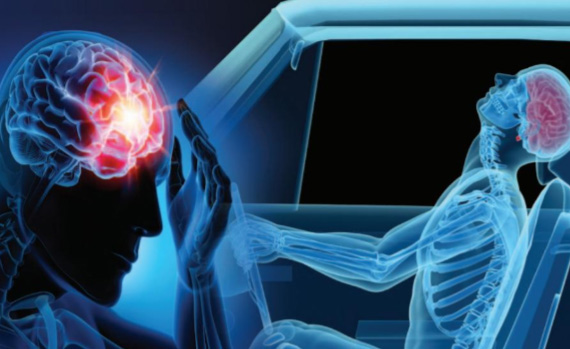Understanding a Concussion in the Wake of a Car Accident
Car accidents can be traumatic events with far-reaching consequences. One often overlooked consequence is a concussion, which can occur even in seemingly minor collisions.
In this blog, we’ll explore what concussions are, how they can result from car accidents, and the importance of seeking prompt medical attention.
Understanding Concussions
Concussion, medically referred to as a Mild Traumatic Brain Injury (MTBI), is a form of brain injury characterized by a temporary disruption of normal brain function. It can occur without loss of consciousness and might not show up on standard imaging tests like CT scans or MRIs. Symptoms can vary widely and may include headaches, dizziness, confusion, memory problems, and mood changes.
Concussions and Car Accidents: A Closer Look
- Mechanism of Injury:
- A concussion often occurs when there is a sudden jolt or blow to the head or when the head strikes an object. In a car accident, this can happen due to the force of impact, causing the brain to move within the skull.
- Whiplash and Concussion:
- Whiplash, a common injury in car accidents, can also lead to a concussion. The rapid back-and-forth motion of the head can cause the brain to shift within the skull, resulting in injury.
- Delayed Onset of Symptoms:
- It’s crucial to recognize that symptoms of a concussion may not immediately appear after an accident. They can manifest hours or even days later, making it essential to seek medical attention promptly.
The Importance of Prompt Medical Attention
- Early Intervention is Key:
- Seeking medical attention after a car accident, even if you don’t immediately feel injured, is crucial. A healthcare professional can assess for a concussion and provide appropriate care.
- Preventing Complications:
- Early diagnosis and treatment can help prevent potential complications associated with a concussion, such as prolonged symptoms or post-concussion syndrome.
- Legal and Insurance Considerations:
- Documenting your injuries through a medical evaluation can be important for any potential legal or insurance claims related to the accident.
Recovery and Support for a Concussion
- Rest and Recovery:
- Rest is a critical component of concussion recovery. It allows the brain to heal and reduces the risk of exacerbating symptoms.
- Gradual Return to Activities:
- Under the guidance of a healthcare professional, gradually reintroducing activities can help gauge your tolerance and prevent overexertion.
- Cognitive Rehabilitation:
- For those experiencing cognitive difficulties, rehabilitation programs can help improve memory, attention, and problem-solving skills.
A concussion is a serious consequence of car accidents that should not be underestimated. Recognizing the potential for injury, seeking prompt medical attention, and following a tailored recovery plan are crucial steps toward a full and successful recovery.
If you or someone you know has been in a car accident, prioritize your health and well-being by seeking medical evaluation and care from a trusted medical provider, like Xcell Medical Group. Remember, early intervention can make a significant difference in the outcome.

